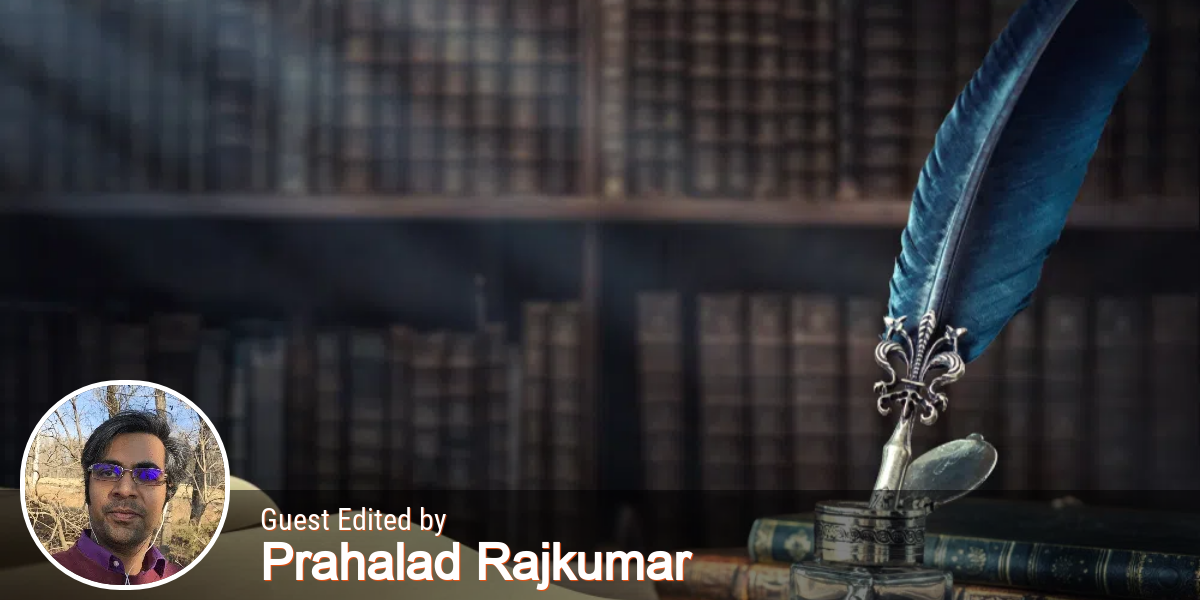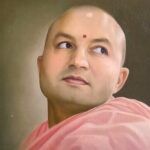I was terrified to publish my first article on os.me.
Spiritual leader Om Swami opened his blog os.me for the public to write in June 2020. I made several lists containing article ideas. They remained as lists. For a long time. I finally took the plunge and published my first article in November 2020. Pressing the “publish” button transported me into a new world. And there was no looking back.
I kept writing. But I had a gnawing feeling that something was missing in my writing. I went on a quest to pick up tips to improve my writing.
Here are 10 lessons I learned (and am learning more):
- The headline is ultra-important. The reader has a choice of several articles to read. Your headline is your chance to convince the reader in a few seconds to read your article. Your headline must be descriptive, catchy, and tell the reader what they will get from your article. The number of words in a headline is platform-specific. Some platforms encourage long headlines. Os.me recommends your headline be no more than 10-12 words.
- Make your paragraphs short. A lot of people read articles on their mobile phones. Having short paragraphs makes it easy for the reader. Sometimes, a single sentence is sufficient to make up a paragraph.
Blasphemous? Welcome to the world of online writing. - Begin your article strongly. I am often tempted to lead up to the main point by writing a background. I learned that this is a mistake. A costly one. If this background is weak and unappealing, the reader will get bored and move on to the next article.
The article has to begin strongly to capture the reader’s attention. And the rest of the article builds on this strong foundation and delivers the goods. - Don’t use fancy words. This is another example where online writing has rules different from conventional writing. This tip is especially hard for me to follow, as I love learning new words, and using them in my writing is the way I practice them.
Assume that your reader is a fifth-grader and ensure that the article is simple enough for them to read. Which means eschewing words like eschew.
Save those fancy words for your book. I’ve observed author Ryan Holiday doing that. His books contain many words that I have to look up in the dictionary, but his online articles stay clear from these words. - Assert yourself strongly. If you have doubts about what you write, the reader doesn’t get the incentive to read your article. Consequently, assert your point of view strongly. Avoid using words like “Maybe”, “Possibly”, “Arguably”. They weaken the tone of the article.
Your job is to present your viewpoint. The reader is welcome to agree or disagree with your stance. - Remove “that” from your sentences. This is a nifty hack
thatI learned recently. When I went through my articles, I found (gasp) an excessive amount of ‘that’s in my articles. When I removed them, the revised articles were much more pleasing to the eye. - If your article is a listicle comprising several bullet points, consider converting each bullet point into an article of its own. Writers are on a constant prowl for article ideas. If you have an article that has 8 bullet points, the article summarizes the central idea of these 8 points.
Consider making each bullet point an article of its own. You’ll be able to devote more attention and real estate to the idea when it is an article in its own right. - Read regularly. Read books. Online articles. Research journals. Magazines. Comics. Whatever catches your fancy. But read.
All of this becomes potential material for your writing. - Use a spell checker and a grammar checker. I have a confession: I didn’t use a spell-checker for my first 80-odd os.me articles. I typed my article directly in the os.me editor, edited it manually, and published it.
I now use Grammarly before posting my articles. Microsoft Word or Google Docs’ spell checker does the job capably - Write regularly. This is the granddaddy of all writing advice. Write regularly. If possible, write every day.
Your writing will likely be raw in the beginning. The more you write, the better it gets. And it keeps getting better
“I learned to write by writing”. ~~ Neil Gaiman
Did you notice a pattern in these tips? Some of these are the opposite of what your English teacher taught you. Which means, if you failed your English exams, or couldn’t get through The Count of Monte Cristo, no problem — you can become a successful online writer!
Looking to monetize your online writing? Blogger Amardeep Parmar offers suggestions in this os.me newsletter. Looking for more writing tips? Check out writing tips in this os.me newsletter. Want even more fantastic writing advice? Check out the Creative Writing course by spiritual leader and best-selling author Om Swami and award-winning poet and best-selling author Sadhvi Vrinda Om
On another note — if you want to publish your first article but are reluctant as I was, here are a few reasons you should go ahead and publish it anyway.
- Your articles can impact people positively. I believed this after I saw this first-hand. I have benefited from reading several articles online. And I have been gratified to see people tell me they got something from my words.
- You get a chance to clarify your thoughts. When you write an article, you get a chance to reflect on your ideas and clarify them. Which you may not do otherwise.
- What’s the worst that can happen if you press publish? The worst that can happen is that people don’t read your article. Big deal. The advantage in publishing in a community such as os.me is you don’t have to deal with rude comments and trolls.
Thought for the Week

Transformative Ideas
Yagna – The Spirit of Sacrifice: What is Yajna? Mansi Om Dwivedi answers this question at great length. This first part in a three-part series explains the concept of Yagna and its importance and what we can do to inculcate the true spirit of Yagna. Mansi quotes the Bhagavad Gita, the Bṛihadāraṇyak Upaniṣhad, the Vedas, and the Kalpa Sutras to explain the Yagna. After reading this article, you will have a newfound appreciation for the Yagna.
Autodidactus: Nandita Basu examines the word autodidact. Which means a self-taught person. Nandita explores why we don’t believe we can teach ourselves skills. And proceeds to recount a conversation with an autodidact. A powerful article.
Why Do We Lie?: In a Zoom call in 2021, spiritual leader Om Swami posed a hard-hitting question to his viewers: You know you should not lie – why do you still lie? In this article, Biswa Nanda provides 6 reasons why we lie.
Being Busy is Bewakufi: Everyone is busy. Nobody seems to have the luxury of sitting in their armchair and relaxing with a cup of Chai. Being busy all the time is foolishness, argues Alok Sinha in this hard-hitting article. By the way, Alok posted one article each day on os.me from 5th October till 23rd February.
Fusion Meditation: Dentist Pariselvakumar Panneerselvam and his brother decided to do a three-day Gayatri Sadhana. During his chanting, an insight flashed in his mind, and he came up with a unique approach to do his japa, which he terms “Fusion Meditation”. This article entertains as well as instructs.
Vedic Vision: “Upanishads work on your intellectual transformation.” Swati Gunwant writes about living life the Vedic way. In her article, she covers the Vedic ideology, practices, festivals, sadhana, as well as success stories when living life as prescribed by Sanatana Dharma.
The Weave: In this poignant article, Kakoli Das writes about a personal experience and draws an analogy between the weaver who weaves a saree and the creator who weaves the canvas of life.
Multiple World: You create your own world. Vamsi Krishna Anyam (who, by the way, got married last month) talks about the multiple worlds present in each of our lives. By way of example, he lists his past worlds and present worlds. This post gave me several points to reflect on – am I choosing my worlds wisely, for starters?
Watch it Now!
Wisdom from Om Swami
The Secret of Mastery: Effortlessness in anything comes from immense effort, says spiritual leader Om Swami. In this article, he describes the way to achieve mastery in any field. He strongly asserts that mastery in any endeavour is not the prerogative of a fortunate few but the birthright of every single individual.
The Art of Discipline: Spiritual leader Om Swami sums up the secret sauce of success in one word: discipline. Just like success, discipline is addictive. Discipline is the one common denominator of the greatest of the greats. This article is a must-read for anyone wanting to succeed in any field.
“Paradoxically, discipline sets you free. It gives you the freedom to do anything, to accomplish anything, to be anything you want.” – Om Swami
PS: Did you find this Digest useful? Let me know in the comments. Know someone who’d find it helpful? Share this post with them and introduce your friends and family to our phenomenal Karma program.








Comments & Discussion
96 COMMENTS
Please login to read members' comments and participate in the discussion.